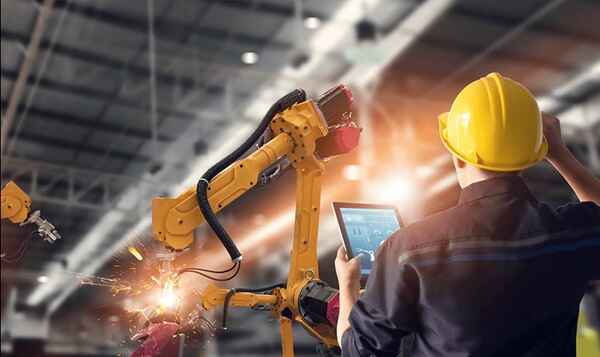Why Buying Used Industrial Equipment Makes Financial Sense?
For businesses operating in the industrial sector, the choice between new and used machinery is a critical one with substantial financial implications. Used industrial equipment can offer a bevy of benefits, from lower purchase prices to immediate availability, which cannot be overlooked. Understanding these benefits is key to making an informed decision that aligns with your company’s financial goals and operational needs. Below, we delve into the economic sense behind choosing pre-owned machinery for your industrial operations.
The Economic Advantages of Purchasing Used Industrial Equipment
The purchase of used industrial equipment offers significant economic advantages, chief among them being reduced capital expenditure. When companies purchase pre-owned machinery, they avoid the premium price tag that comes with new equipment, allowing them to allocate funds to other critical business areas. Second-hand machinery also has the potential to provide a better return on investment since it often retains its functionality and productivity at a lower cost.

Another factor to consider is the immediate availability of used industrial equipment. Unlike new machinery, which may have long lead times due to manufacturing and shipping, used equipment can often be acquired quickly. This rapid procurement allows businesses to maintain or increase their productivity without the downtime associated with waiting for new equipment to arrive.
For companies looking to expand or replace existing machinery, buying used industrial equipment can lead to significant tax advantages. Depreciation deductions can sometimes be more favorable for used equipment, providing a boost to a company’s bottom line. For those interested in exploring a wide range of used industrial options, you can visit genemco.com to find the right machinery at the right price.
Assessing the Value Proposition: Used Versus New Equipment
Evaluating the value proposition between new and used industrial equipment requires a careful analysis of numerous factors. Cost is obviously a primary consideration, with used equipment often being considerably less expensive. However, the assessment also needs to factor in performance, compatibility with existing systems, and the expected usable life of the machinery.
Apart from the initial purchase price, businesses should consider the overall operational costs, including maintenance, repairs, and energy consumption. While it’s sometimes assumed that new equipment is less costly to maintain, many used machines are robustly built and can be maintained effectively and economically with the right strategy.
When companies choose pre-owned equipment, they also contribute positively to environmental sustainability. Reusing machinery reduces waste and the need for raw materials to produce new equipment, positioning a company as an eco-friendly and socially responsible entity; a factor that can resonate well with customers and stakeholders.
Lower Initial Investment and Reduced Loan Amounts With Pre-Owned Machinery
Sourcing pre-owned industrial machinery translates into a lower initial investment for businesses. This reduction in upfront costs is particularly advantageous for startups and small businesses that operate with limited budgets. They can still access high-quality equipment without the hefty price tag, allowing them to compete more effectively in their markets.
A lower purchase price for used equipment also means reduced financing needs. Companies can potentially avoid taking on large loans that would typically accompany new machinery purchases—a significant advantage that can result in better cash flow management and lower interest payments over time.
Another facet of a lower initial investment is the possibility of buying more or better quality equipment for the same budget. This can provide an immediate boost to capabilities and productivity, driving growth and profitability without the lengthy payback periods associated with new equipment financing.
Extended Equipment Lifespan and Cost-Effective Upkeep Strategies
Many operators of used industrial equipment have successfully extended their lifespan through effective maintenance and upgrading strategies. Contrary to the myth that newer machinery is always more reliable, many used units are constructed with longevity in mind. With proper care and regular servicing, these machines can offer many additional years of service, delivering on their value proposition long after the initial purchase.
Implementing a cost-effective maintenance schedule can prevent unforeseen breakdowns and extend the working life of used equipment. It tends to be easier and less expensive to repair and maintain older equipment since parts are often more widely available and compatible across different models or years.
Overall, the advantages of buying used industrial equipment are manifold and contribute to significant cost savings for industrial businesses. By understanding the financial benefits, appreciating the value of depreciation, and implementing strategic maintenance plans, companies can make the most of pre-owned machinery purchases to boost their operational effectiveness and bottom line.


